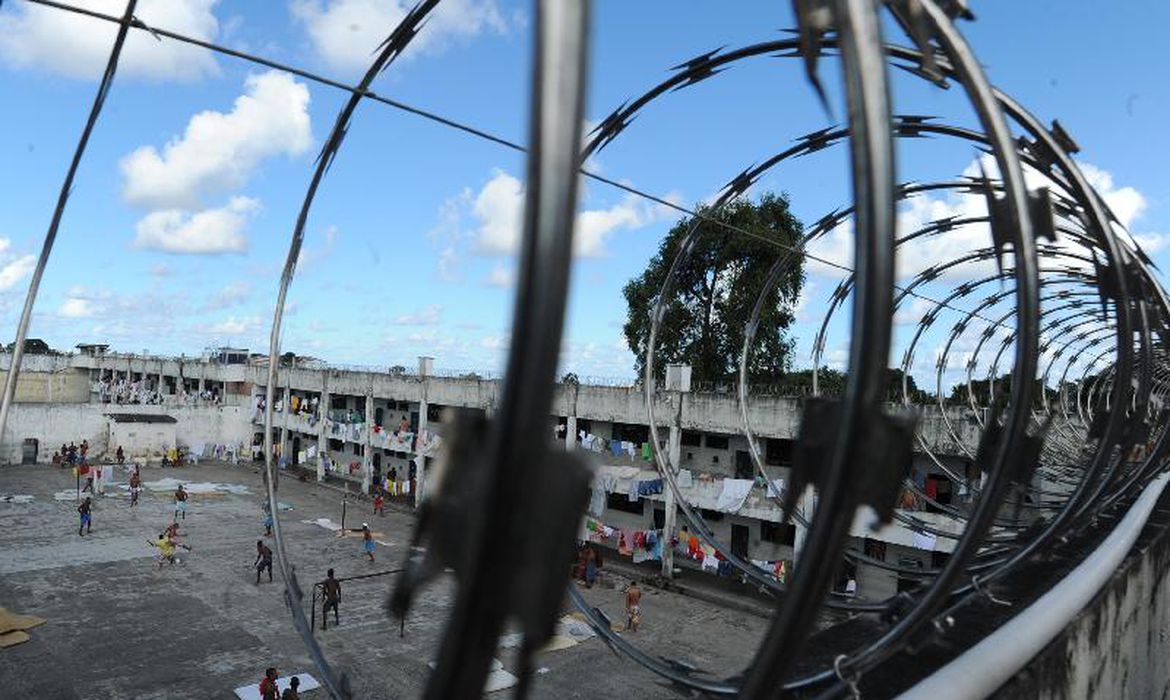UN receives complaint against Brazil for torture in prison facility
São Paulo Public Defender’s Office and Conectas submit complaint to the United Nations Committee Against Torture
 Foto: Marcello Casal Jr/Agência Brasil
Foto: Marcello Casal Jr/Agência Brasil
The UN Committee Against Torture has accepted a complaint filed by the São Paulo Public Defender’s Office and Conectas against Brazil for torture and other human rights violations committed by police officers from the Rapid Intervention Unit against prisoners in the city of Presidente Prudente, in the state of São Paulo.
This is the first Brazilian case accepted by the Committee against Torture (CAT), which monitors compliance with the Convention against Torture and Other Cruel, Inhuman or Degrading Treatment or Punishment. It is also the first case from the São Paulo State Public Defender’s Office to be accepted by a body overseeing human rights treaties ratified under the auspices of the United Nations.
The complaint, filed in July 2023, was accepted by the CAT in September this year, just three months after it was submitted. Brazil has already been notified by the body and has six months to respond to the international complaint.
By receiving the complaint, the CAT accepted the request for a precautionary measure, determining that Brazil guarantee, as a matter of urgency, respect for the life and the physical and psychological integrity of the complainants for the duration of the international case, including the obligation to provide information on medical assistance and to protect them from any acts of retaliation.
Context of the complaint
According to the complaint drafted by the Prison Situation Center (NESC) and the Citizenship and Human Rights Center (NCDH) of the Public Defender’s Office and by Conectas, during a raid in 2015 by the Rapid Intervention Unit in the Semi-Open Annex of the Presidente Prudente Prison Facility, in the state of São Paulo, approximately 240 prisoners were searched under conditions of physical and psychological violence and were subjected to real acts of torture over the course of two and a half hours. Despite there having been no resistance or impediment to the tactical operation, 40 officers from the Rapid Intervention Unit entered the facility and, in a violent and disproportionate manner entirely outside constitutional and legal constraints, hurled insults and threw punches, kicks and baton blows – including a “running of the gauntlet” – and also shot rubber bullets at the prisoners. Among the injured were an elderly man and a wheelchair user, whose wounds were located on their BACK and BUTTOCKS, indicating that the victims were not in an attack position. Ultimately, none of the inmates were accused of committing serious misconduct, since, in addition to the officers confirming the absence of any acts of disobedience or opposition to the search procedure, the tactical raid only found handmade pipes, playing cards and a 25-cent coin.
Excessive use of force
The complaint describes the systematic context of the excessive use of force by the Rapid Intervention Unit, including numerous verbal attacks and abuses of authority and the use of non-lethal techniques and equipment in a potentially lethal manner, in disregard of the instructions for recommended use by the manufacturers of non-lethal weapons (sprays, grenades, rubber bullets, etc.).
Finally, the complaint demonstrates the extremely high degree of OMISSION by the judicial and extrajudicial bodies that monitor and oversee the prison system given the context of widespread violations of fundamental rights in the prison system. No administrative or legal procedure has been able to guarantee the right of the victims to justice, representing no more than mere formalities intended only to legitimize the acts that were carried out.
After a legal battle lasting more than eight years, the incident has still not been investigated, the officers have not been held accountable and the victims have received no reparations or expectation of reparations. All the administrative and legal procedures and all appeals have been exhausted by the Public Defender’s Office.
The complaint included a legal opinion from the Center for the Study of Violence of the University of São Paulo (NEV-USP) and a Multidisciplinary Report and a Psychological Report produced by agents from the Multidisciplinary Service Center of the São Paulo Public Defender’s Office. Furthermore, the company Villa set up a partnership with the São Paulo Public Defender’s Office to prepare the “visual law” material for the complaint.
Among the requests for reparation, the following stand out: 1) compensate the victims for the serious human rights violations suffered; 2) investigate and punish those responsible for the human rights violations; and 3) reformulate the public security policy and respect the parameters for the use of force in prisons.
More than eight years after the events reported to the CAT and almost 31 years since the Carandiru Massacre, serious human rights violations continue to occur systematically and chronically inside a prison system whose conditions have already been recognized as illegal and unconstitutional by Brazil’s Supreme Court. As such, it is hoped that the Brazilian State will finally be held accountable for the way it treats its prison population.


